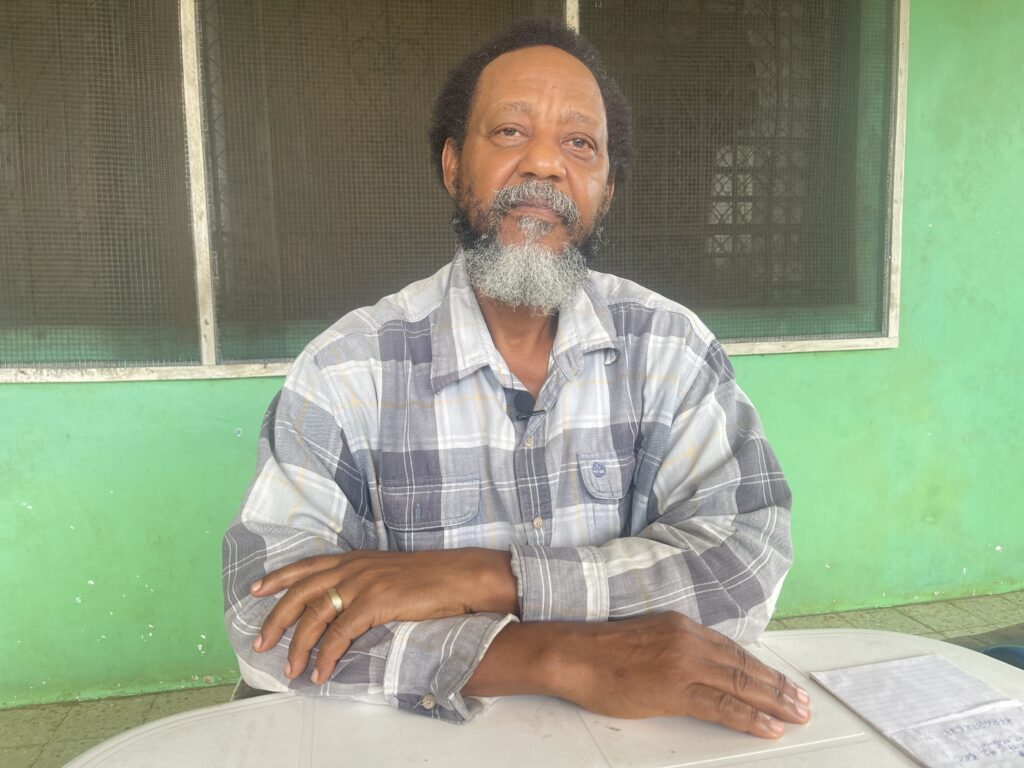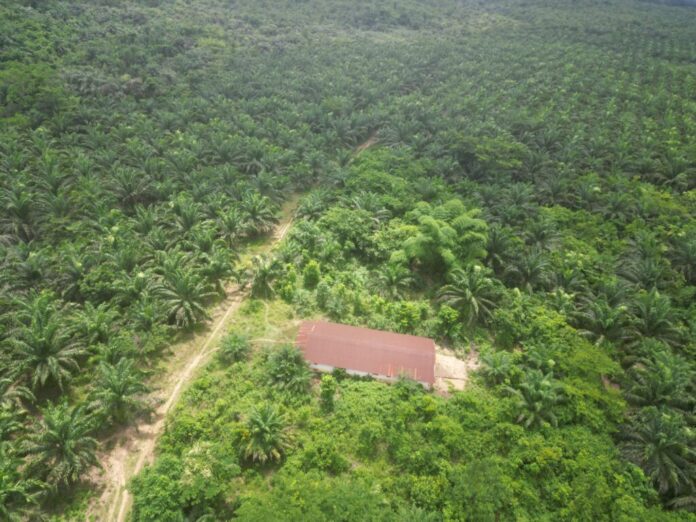In 2007, villagers in Coniwein in District Number Two, Grand Bassa County jubilated after signing an agreement with Local Farm Inc., a Liberian-owned agriculture company.
But 15 years on, things have turned out to be the exact opposite. Controversies with Franklin Jackson, Local Farm’s owner, and CEO, have changed the inspiration for hope among townspeople into despair.
“Franklin Jackson told us that Local Farm was a pumpkin and he was planting the pumpkin to spread in Coniwein. But the pumpkin is not spreading. Now we are suffering,” says Anthony Ben, a resident of Gbiagaye Town, the headquarters of Coniwein.
Coniwein leased Local Farm Inc. 2,500 acres of land to plant crops, with profits from their sales to be shared equally between the parties, according to their 2007 agreement.
The villagers wanted development in the area, following decades of neglect by the state like much of the countryside. They would use the funds to pave roads, build a school and a clinic, and erect handpumps, among others.
Local Farm planted palm trees on about 750 acres of the land found in the Marblee Clan, the villagers, and the company say. Production started in 2010, according to the community, or 2013, according to Jackson.
But except for US$20,000 in 2013, Jackson has made no payments to Coniwein over the years. It did not make any financial reports—to announce profits or losses—as the agreement mandates.
This soured the relationship between the community and the company.
The peak of their conflict was when Coniwein sued Jackson in 2018 for economic sabotage and misapplication of entrusted property.
He had used the community’s deed as collateral to acquire a US$160,000 loan from the Afriland First Bank, US$90,000 of which he received. However, the Second Judicial Circuit Court in Buchanan, Grand Bassa County cleared him of all charges, according to court documents.
‘I take full responsibility’
In an interview at his home in Paynesville, Jackson says he cannot pay the community any money because he has not made a profit, despite investing US$1 million in the plantation. He says the US$20,000 in 2010 was an upfront payment.
Jackson concedes breaching the agreement and blames the Ebola epidemic and the coronavirus pandemic for his farm’s woes. He says Ebola, which broke out in Liberia in 2014, disrupted the farm’s initial efforts to produce palm oil. And when it was recovering, coronavirus came in 2020.
“Like all businesses, we shut everything down. If we don’t make a profit, you can’t divide nothing,” he tells The DayLight.
Jackson claims that he informed the community he was shutting down due to the epidemic. However, there is no record that Local Farm activated the force-majeure provision of the agreement with Coniwein.

Apart from the contract issues, Local Farm owes its workers several months of unspecified, unpaid wages.
“First, from the brushing, they paid us by cash, and second, they paid us by oil but the oil that we were supposed to receive, we [did] not receive all,” says Ben, also a former contractor.
Jackson again blames Ebola for owing workers and says he is willing to pay them once he resumes production on the farm.
“We thought that Ebola could have lasted a few months. That resulted in us owing ex-employees,” Jackson says. “We had to lay off the employees and we didn’t have the money to pay them. This is where that employees’ liability comes in.”
Matters are worsening at the plantation by the day. Two months ago, chiefs and elders halted operations. Villagers are harvesting the plantation in Gbeal Town.
Reporters of The DayLight photographed and video-recorded one man carrying a container of palm oil from the plantation. There were signs of no guards at the plantation.
“The agreement we [entered] in, we can’t get our share. That’s why we put [a] halt to the farm,” says Joseph Karngbo, president of the Coniwein-Gbeal Development Association, the group established to manage the section’s land.
Jackson fears the plantation could be lost soon because villagers are not trained to harvest palm bunches.
“We trained particular people to harvest. Handling palm during harvesting is one of the most delicate things because if you don’t know how to harvest, you kill it (palm tree) prematurely,” Jackson notes.
The action of the townspeople to halt operations at the farm violates the agreement. It requires the community to begin embarking upon an arbitration process to resolve its dispute with the company.
But Jackson appears resigned already. “I have come to understand that I was wrong, I was naive, stupid and I made the wrong decision; I take full responsibility.”
Original reporting by the the daylight.org






















